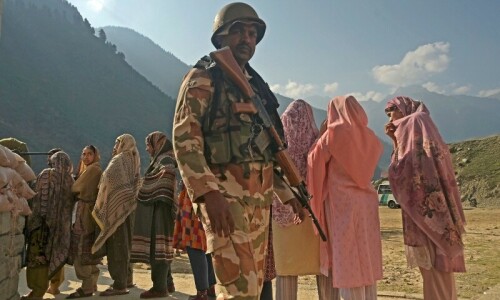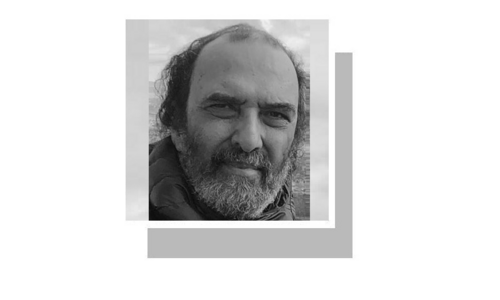WEST VIRGINIA: When Laura Gernell heard about a place where people gave away perfectly good things to strangers — no money changing hands, no questions asked — she figured it was too good to be true.
But husband Ronald had lost his job as a truck driver and she was temporarily unemployed, at home in a rented, unfurnished apartment with her infant son. With nothing to lose, she joined The Freecycle Network, a web-based community swap programme, and asked if anyone had a sofa to spare.
“I wasn’t looking to furnish my whole apartment,” says the 32-year-old mom from Marmet, just south of Charleston. “I was just looking for the basics, just something to sit on.”
Three people e-mailed with offers, and Gernell used the sofa from that day in 2004 until last summer, when the springs broke. Today she runs West Virginia’s largest Freecycle group, 2,100 members strong and part of a far-flung forum where people can find homes for things they no longer want.
“It just has completely floored me, the generosity of people,” says Gernell. “Especially in West Virginia because West Virginia is considered one of the poorest states in the nation. But people are very generous. It’s amazing.”
Freecycle is a global recycling phenomenon. Since it started in Arizona in May 2003, it has grown to more than 4 million members in more than 4,100 cities, from Istanbul to Inwood. It boasts of keeping more than 300 million tons of trash out of landfills every day and has inspired imitators.
There are, says founder and executive director Deron Beal, as many heartwarming stories as there are groups: the American Indian tribe that collected used prom dresses for girls in need; the Hurricane Katrina evacuee who furnished a new home; the 98-year-old man who collects and assembles bicycle parts, then gives what he’s built to children; and the woman in Austin, Texas, who collected items for an orphanage in Haiti, then got FedEx to deliver the shipping container for free.
“It’s just all sorts of countless acts of random kindness,” says Beal, 40, of Tucson, Arizona. “Whatever they want to make out of it, they really can.”
Call them corny. Call them cliche. But Freecycle is built on principles that work: One person can make a difference. Giving is better than receiving. One person’s trash is another’s treasure. Commit an act of kindness and it will be returned.
“It’s not like a get-rich-quick scheme. You’re not going to get everything you want every time you want it,” Gernell says. “The more offers you post, the better outcomes you’re going to have.”
Beal began his experiment with an e-mail to 30 or 40 friends, inspired by his trash-diving adventures on behalf of homeless men trying to get back on their feet. When his nonprofit group’s warehouse was full, he realised he needed a new way to unload.
His network grew to 800 members almost overnight, after a newspaper story started spreading the word.
“From the get-go, it absolutely snowballed, and we’re basically doubling in size every year,” Beal says. About 30,000 people join weekly, with the single largest group in London, some 40,000-strong.
Though Freecycle caught on first in progressive cities like Portland, Oregon, San Francisco and Madison, Wisconsin, Beal says Chicago, St. Louis and New York followed quickly. Then word of mouth took over, with people in the cities telling people in small towns.
“It’s very much a viral sort of growth and randomly beautiful,” he says.
It’s also self-policing, patrolled by 10,000 volunteer moderators who ensure that items are being swapped legally.
West Virginia has more than two dozen Freecycle groups, with thousands of members offering a service Gernell says many people need.
Heather Edwards, a moderator of the Martinsburg-Berkeley County group in West Virginia’s Eastern Panhandle, finds great deals for her four children, who range from 9 months to 15 years old.
“I got a humongous plastic playhouse for the kids,” she says. “It costs about $400 new.”—AP













































Dear visitor, the comments section is undergoing an overhaul and will return soon.